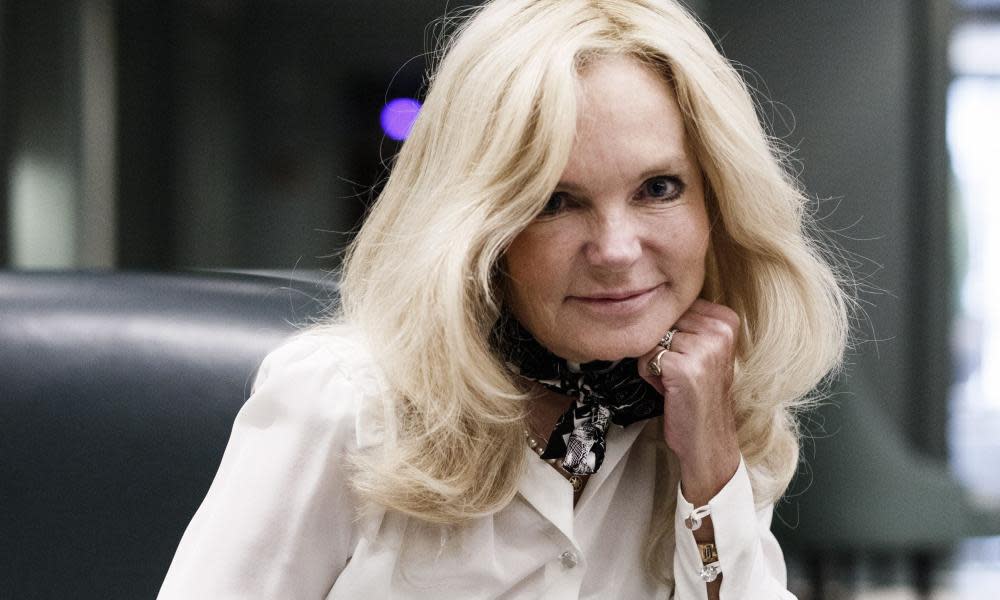Lucinda Riley obituary

Lucinda Riley, who has died of cancer aged 56, was seen on television in the 1980s as the runaway teenage daughter of one of the itinerant bricklayers in the hit comedy-drama Auf Wiedersehen, Pet before leaving acting behind to become an author of romantic and historical fiction.
The course of her life changed when she suffered glandular fever after contracting the Epstein-Barr virus. Bedridden at the age of 24, she started writing her first novel, Lovers and Players (1992), a tale of three women’s intertwined lives set against a backdrop of the West End and Hollywood.
A number of books followed, featuring the dramas of actors, singers, models and ballet dancers, but her greatest success was the Seven Sisters series, where she combined her characters with her lifelong fascination for history. The inspiration for these international bestsellers, with sales of 20m, came as she gazed into the Norfolk night sky at the Pleiades star cluster in 2012. The seven books, based on legends surrounding the cluster, follow six of the adopted D’Aplièse sisters as they journey around the globe in search of their roots.
“I wanted to celebrate the achievements of women,” said Riley, “especially in the past, where so often their contribution to making our world the place it is today has been overshadowed by the more frequently documented achievements of men.”
The Seven Sisters (2014), a story taking Maia D’Aplièse from Lake Geneva to Rio de Janeiro, was followed by The Storm Sister (2015), embracing historical Norwegian figures such as Edvard Grieg and Henrik Ibsen. Then – with settings ranging from the Beatrix Potter-era Lake District, London Edwardian society and the Scottish Highlands, to Thailand, Australia, Spain, South America, New York and Kenya – came The Shadow Sister (2016), The Pearl Sister (2017), The Moon Sister (2018) and The Sun Sister (2019).
The Missing Sister, the final book in the series, published in May this year, follows the sextet on a search for another daughter adopted by the wealthy Pa Salt, whose death and burial at sea sparked their quest to solve the mystery of why he adopted girls from all corners of the globe.
This enigmatic figure was partly based on Riley’s own father, Donald Edmonds, a director of the textiles manufacturer Courtaulds, whose work took him on frequent trips abroad. “He cut a mysterious figure and myself, my mother and my sister really didn’t know what he did when he was away,” she recalled. “We would wait with anticipation for him to return, always with a gift from another exotic country.”
Lucinda was born in Lisburn, County Down, and spent her first few years in the nearby village of Drumbeg. Her mother, Jane (nee Cottham), and great-aunt had been professional actors, her grandmother was an opera singer and her great-uncle was chief lighting designer at the Royal Opera House.
When Lucinda was five, her father was transferred to Courtaulds in Derby, so the family left Northern Ireland to live in Leicester. Six years later, she appeared on stage as one of the Von Trapp children in a production of The Sound of Music (1976), staged by the city’s rotary club at the De Montfort Hall.
She acted at the Little theatre with Leicester drama society before starting ballet and drama studies at the Italia Conti Academy of Theatre Arts in London, at 14. After being spotted in a ballet class there by a television director, she was cast as Dora, one of the Bastable children, in a 1982 BBC serialisation of E Nesbit’s children’s novel The Story of the Treasure Seekers.
Then came a 1983 episode of Auf Wiedersehen, Pet in the role of Tracy, daughter of Brian “Bomber” Busbridge, who was portrayed by the actor-wrestler Pat Roach. Her character was seen arriving in Germany after leaving her home in Bristol as he headed back there to search for her on hearing of her disappearance. “I learned how to drink, doing that show,” she later said. “That’s all they seemed to do. I was only one of two females and the rest were all men. It was fantastic. I had a brilliant time doing it.”
She gained further theatre experience as Mary, the young orphan sent to live with her uncle, in a stage version of Frances Hodgson Burnett’s novel The Secret Garden, at the King’s Head, Islington (1987). She made another brief screen appearance, as Emma, alongside Sheila Hancock, in a 1989 adaptation of Mary Wesley’s novel Jumping the Queue, before she was flown to Hollywood to screen-test for a role in the 1991 film Robin Hood: Prince of Thieves. She disliked the experience intensely, recalling: “When I got home, I cried and said I never wanted to go there again.”
Turning to writing, still as Lucinda Edmonds, she followed Lovers and Players with novels such as Hidden Beauty (1993), Enchanted (1994), Losing You (1997) and Playing with Fire (1998). Her 1988 marriage to the actor Owen Whittaker, whom she met while shooting a commercial, ended in divorce. In 2000, she married Stephen Riley, who had led a management buyout of the company that became Denby Pottery, and she took a 10-year break from writing to bring up their children.
Then, as Lucinda Riley, her career as an author soared. Alongside the Seven Sisters series, she wrote novels such as Hothouse Flower (2010, also titled The Orchid House), The Girl on the Cliff (2011), The Midnight Rose (2013), The Angel Tree (2014) and The Butterfly Room (2019). Her total sales worldwide were 33m.
Riley is survived by Stephen, their two children, Leonora and Kit, the two children of her first marriage, Harry and Bella, and three stepchildren, Olivia, William and Max, as well as her mother and her sister, Georgia.
• Lucinda Kate Riley (Edmonds), author and actor, born 16 February 1965; died 11 June 2021


